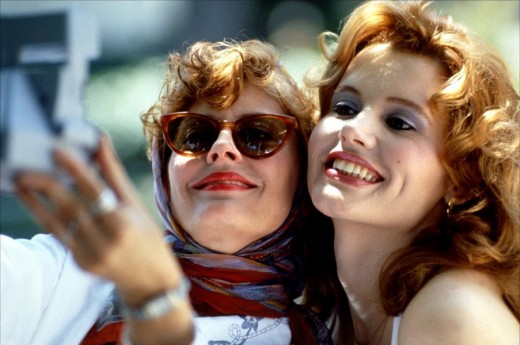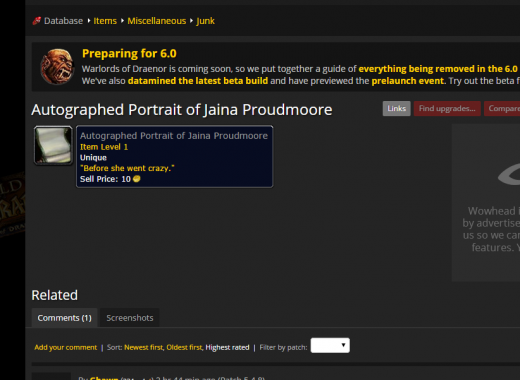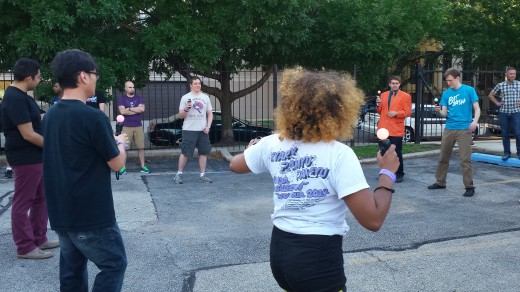I won’t pretend that this is even remotely an objective look at literally anything and rather a bag of cats that I’ve had going around in my mind for a week now. It’s almost 4 AM my time and this is nothing but one of those dreadful, self-absorbed noodlings on personal experiences and feminist theory. But isn’t that the point of discourse of in our community?
All of this started because I started seeing (whether some phenomenon or actual increased usage in just specifically my circle of Twitter acquaintances) sex positivity and sex negativity being mentioned in the last couple of days. It feels good to see feminist discourse happening in the video games community because I think it is sorely needed after the last 3 months. Admitting that we’re allowed, as feminists, to disagree with each other, feels like a positive first step in healing and growing a community where we’re not letting harassment cause us to constantly have reaffirm each other’s humanity to disgusting people versus having diverse discussions about the nature of our critique.
This seems, of course, all related to Bayonetta 2.
(Here is where I admit I have not played either 1 or 2 to any great degree. As a cultural work though, I feel it has quite a lot of innate context just from the the design and mechanics.)
Not only have I seen several comments painting Bayonetta 2 as enjoyable because of a sex positive viewpoint, but I’ve also seen sex negativity specifically float around as the opposite of that. If you enjoy Bayonetta, you’re the champion against sex-negativity. I find this really hurtful and reductive, especially as someone who tends to fall closer to sex critical or sex negative. I feel that reducing one’s ideological stance to your feelings on literally one video game character undoes a lot of the real nature of sexual discourse in feminism.
This is where I pause and say that you should all read Maddy Myer’s incredibly awesome look at Bayonetta 2. I don’t agree with all of it but I think it’s a really important line of conversation to have and it has a lot of nuance and angles to look at. This is the kind of stuff that games criticism should touch on and we should always make room for. Here’s also where I draw a circle around this conversation with salt , because, straight men, I do not actually give a shit how you feel about any of my thoughts today.
I think I should backtrack a bit and maybe elucidate on why sex positivity/negativity are particularly unsettling concepts to flatten out. For one, neither sex positivity nor negativity initially started as feminist dialogues. Both were schools of thought that date back pretty far in history and eventually came into the fold of critical discourse later on. Sex positivity was a celebration of sexual behavior without moral judgement and sex negativity was the fairly prudish opposite of that, crying that sex was a root of many different problems. Neither are particularly interesting at that basic level and I believe that they became much more interesting once feminist and other social justice movements got started. Much of what was dubbed the “Feminist Sex Wars” were a struggle between two wings of feminist thought - one that openly embraced the Free Love aspect of the 60s and 70s and the other wing that became much of the second wave’s anti-pornography collective. Again, both have really interesting things about them. Second wave also had issues with not just a lack of regard for sex workers but also trans women as well, which is why a lot of sex negative critique is largely not useable. However, moving past that into more 3rd wave and more intersectional analysis of feminist critique, we can see why both approaches are valuable.
I do not see sex negativity or positivity as wholly bad positions. I also don’t see them as opposites necessarily, either. If sex positivity in feminism is embracing women’s agency and sexual empowerment, then sex negativity is critiquing the structures that make enacting that agency and empowerment an issue. I think both together make up a body of sex criticism that looks at the ever-present issues of misogyny, abuse, rape culture and sexual performance, sexuality that is part of our work as a whole. Looking at one without the other, in my mind, does a disservice to large concepts and methods. Both, taken to logical extremes, also have sufficient issues. On the one hand, sex positivity performed in an uncritical way can ignore people who struggle with sexual behavior due to abuse, rape or other traumatic experiences. It can gloss over how sexual performances by women in our society can be co-opted by patriarchal concepts (Female Chauvinist Pigs by Ariel Levy, while a problematic text, rotates around this idea.) However, it’s also a way for women to embrace their own sexual agency that can be uplifting. It can define what that agency means. It can widen the way we perform our sexuality in our culture and ameliorate those who have been marginalized in a sexual way.
Sex negativity, when taken to this same way can be incredibly harmful to sex workers, focusing on how damaging things like porn can be without respect for the women who work in the industry. It can be incredibly narrow about sexual performance that does not happen in a male-dominated space or with the involvement of men. It can fall back largely on white supremacist concepts of sex that were enforced by colonialism and hurt women of color. However, sex negativity also pokes at the meaning of consent in a society that is founded and enforced by men (Andrea Dworkin’s work has a lot of this), it can tackle power dynamics that surround sexual performance as well.
Both things are incredibly essential to a larger critique of sexual practices and themes. Reducing them to “sex positivity means you think sex is good, sex negativity means you think it is bad” is hearkening back to those roots of the theory and inimical to progress in feminist discourse. Sex cannot be all good or all bad and even framing it in that way is reductive. As someone who finds herself incredibly critical of sex, seeing these views crop up in gaming, which is still perceived as male-dominated, is alienating. It also falls back onto actually very misogynistic concepts that reduce women on some level to “bad” or “good depending on one’s views on sex. There’s two flavors of this, one being the more contemporary idea in nerd culture that fun women are sexy and cool, and bad women are frigid and stuck-up. The other older idea is the whole virgin/whore dichotomy, which chides women for being lascivious and sexually impure. Both remove the ability for women to act authentically with their sexual behavior and defines it in a moralistic way. The former is the one I see the most happening lately, especially given that nerd media, like video games, portrays women as sexual beings for men’s benefit only versus any of us. Maddy’s article squarely tackled the idea of male gaze being outdated and I largely agree with her. However, I don’t think that negates that there is definitely a very heterosexual male way of looking, especially in media.
A digression, if you’ll allow me.
One of the points that gets brought up in Maddy’s article regarding how rigid the idea of male gaze is that it does, rightfully ignore that the potential audience that is looking could potentially be queer women. Queer women are often a subset of participators when it comes to media consumption that are overlooked when it comes to women being sexy. It seems to follow logically that we’d be in the same general demographic as straight men when it comes to consuming sexualized women in media - except that it really doesn’t. I’ve felt very pushed aside when it comes to seeing the same images of women that are obviously styled for straight men due to the fact that they both reflect their interests (versus mine) but also have a double effect of how those same men perceive me. Many images of sexualized women are reliant on a larger context that derives from a very male-dominated, heterosexual society and it’s very hard to escape that, no matter who you are. Sexualized women are often portrayed as enticing due to their objectification, lack of agency as well complacency. To say that queer women don’t internalize both the idea that this is what we should find sexy in women, as well as ourselves would be faulty. But to say that that’s where it ends is faulty. I don’t find how women are created to appeal to straight men to be representative of my tastes, especially now as a feminist. It relies on too many problematic and frankly, harmful elements for me to feel comfortable.
The personal aspect of this is that as a queer woman navigating internalized misogyny, sexism and my own sexuality as a nerd, I spent a lot of hours sucking up to male friends by joining in their ogling and chatter of women in a sexual way. One of the easiest ways to fit in with nerd guys as a woman is to be “one of the guys” and being a queer woman who also finds women sexually attractive? That’s like a huge stat bonus. Being bisexual also meant I was technically available, so the possibilities were endless. It’s a fantasy of men to subsume a queer woman’s identity - have her enjoy his sexual overtures but also indulge in objectifying women alongside him. Nerds eat that shit up and so it was one of the ways I got my “cred” and tons of attention. It’s one of the most persistent strains of biphobic misogyny as well, that bisexual women are just attention whores and faking it for men. The fact that you are encouraged to do so for men’s validation is besides the point, right? (Heh.)
But when I really thought about it, especially after I broke out of that part of my life, my sexuality was confusing. I didn’t find women attractive in the same way these men did. I didn’t really want to degrade women or treat them like garbage or sex dumpsters. I wanted them the same way I wanted men - meaningfully, in a fun way, as a fellow human being, in a romantic, emotional or sexual way. In short, I wanted to treat them the way I wanted to be treated.
However, that directly deals with how we as people talk about ourselves, but what about applying these things to media? This is where it gets trickier and why Bayonetta is so contentious. Sexualized images in our media are both subject to the same things real people are but on a much different level. The easiest way to think about is that a fictional character does not have agency. A fictional character does not act on her own steam, she does or says whatever the author (or authors) want her to do. This is why when nerds fall all over themselves to say, “Oh she’s such a sexy, strong woman, look how empowered she is!” I roll my eyes a bit. The author has made a character perform in that way and it means that it’s not immune from criticism in quite the same way a real woman would be regarding her own choices (which are still subject to criticism, I must interject, but it’s still her choice to do those things.) This is why media is such an intriguing topic to engage on a feminist level - we have to both account for the potential author’s intent but at the same time reject it past a certain point. Looking at media on a critical level as a feminist means both picking apart what makes it problematic but can also be celebrating how to derive meaning and enjoyment from it.
This is where we turn back to Bayonetta. She is both the product of a woman designer, who had her own goals for her, as well as a product of our feelings towards her as a character. Her contentious position in videogames comes with a much larger context and that is why so many different people have different opinions about her. I don’t think you have to be looking at it from one particular way to simultaneously hate it or enjoy it and the idea that to embrace Bayonetta means to completely embrace sex positivity does both the character and the concept a disservice. Because from where I stand, I believe it is possible to look at her position as both a potential power fantasy that we rarely see in videogames but also positioned squarely in an industry that allows so few woman characters to exist at all that it’s hard to ignore the sexual elements. It’s an industry in a society that still is controlled on many levels by men, especially sexual performance. Sexual nuances to characters are never apolitical in this climate and they go over about as well as sex in our society. We all have our personal experiences and struggles to consider when wanting to engage with this kind of content and that’s where my fallback onto sex criticism comes - I want women to feel free to reject or embrace as little or as much of Bayonetta as they choose. She’s the product of many people and is both a fetish object and also a rejection of the dehumanization that often occurs. She’s a mockery of masculine ideals of sex appeal and also panders to them at the same time. Bayonetta is both strong and is also subject to the whims of her creators. She flirts with kink and domination while also potentially being a man’s idea of what that means. It’s a confusing bundle of many things and that’s why there is so much disagreement.
In that way, I do agree with what Maddy said - I don’t think she’s solely positioned within the debunked male gaze, but I don’t know how we are supposed to perceive her. Women finding joy and excitement from her, as much as loathing or criticism, is valid. Until we start seeing a landscape more thoroughly populated with nuanced portrayals of women, more of whom are sent out into the world by women authors, I believe we will continue to have this conversation. I embrace it and would love to see more of it, as long as we’re not shutting out other avenues of criticism.



